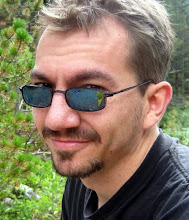A scientist is working on a method of "slowing time" for people which could be used in caring for critical patients.
You see, Roth thinks he's figured out the puzzle. "While it's true we need oxygen to live, it's also a toxin," he explains. Scientists are starting to understand that death isn't caused by oxygen deprivation itself, but by a chain of damaging chemical reactions that are triggered by sharply dropping oxygen levels.
The thing is, those reactions require the presence of some oxygen. Hydrogen sulfide takes the place of oxygen, preventing those reactions from taking place. No chain reaction, no cell death. The patient lives.
...
After that, and after his conceptual breakthrough, Roth was ready to experiment. First up: developing fish embryos. He found a way to drain the oxygen from their cells, and they wouldn't die -- they'd just stop growing. When he put the oxygen back, they'd pick up where they left off. If he suspended them for a day, they took a day longer to develop. No more, no less. Nothing else was different.
Next up were fruit flies. This time, he gassed them. They seemed to die; they stopped moving. Then he returned them to fresh air, and the flies came back to life. New CPR beat back death for a young mom
The air we breathe is 21 percent oxygen. At 5 percent, those fish and flies -- like us -- would be dead in a few minutes. At 0.1 percent, it was another story. "You get a state of suspended animation and the creatures do not pass away, and that's the basis of what we see as an alternative way to think about critical care medicine," Roth says. "What you want to do is to have the patient's time slowed down, while everyone around them [like doctors] move at what we would call real time."
If the patient's time -- the process of your death -- were slowed down, doctors would have more time to fix you. In medicine, time is key. An analogy is the history of open heart surgery. For years, surgeons had the technical tools to make simple repairs on the heart, but they couldn't help patients until the development of the heart-lung machine made it possible to preserve the body for more than a few minutes without a heartbeat.
This is an incredible time to be alive.




No comments:
Post a Comment